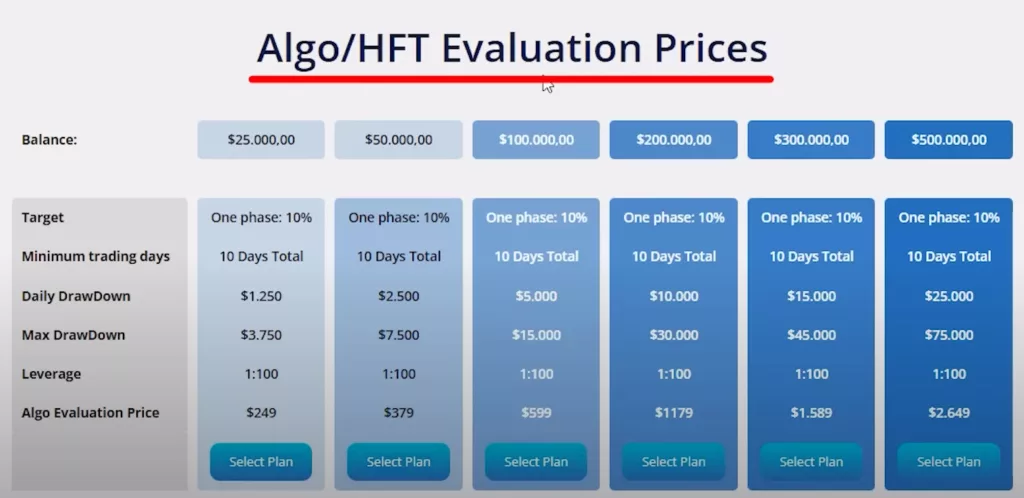Did you know that only about 10% of day traders are consistently profitable? If you're looking to join that elite group, understanding the best strategies for success with day trading prop firms is crucial. This article dives into essential skills for thriving in prop trading, how to select the right firm, common requirements to join, and tips for developing a winning strategy. We also cover effective risk management techniques, tools for trading, and ways to improve your discipline. Additionally, learn how to handle the pressures of trading, understand profit targets, avoid common mistakes, and maximize your funding potential. With insights on leveraging your trading success and tracking performance, this guide is a must-read for aspiring traders. Let DayTradingBusiness help you navigate the exciting world of prop trading!
What are the key skills needed for success with day trading prop firms?
Key skills for success with day trading prop firms include strong technical analysis, quick decision-making, discipline to follow a plan, risk management expertise, emotional control, adaptability to market changes, and solid knowledge of trading platforms.
How can I choose the right prop trading firm for me?
Choose a prop trading firm with a transparent fee structure, solid reputation, and supportive training. Look for firms that align with your trading style and risk tolerance. Check their evaluation process—some firms test your skills with demo accounts before onboarding. Read reviews from other traders to gauge their experience. Consider the firm's profit split, funding policies, and available resources. Pick a firm that offers mentorship or community support to boost your learning curve.
What are the common requirements to join a day trading prop firm?
To join a day trading prop firm, you typically need to pass a trading evaluation or assessment that tests your ability to meet profit targets and manage risk. You should demonstrate consistent profitability, usually over a set period, with a proven trading track record. Most firms require a minimum trading capital, a good understanding of risk management, and compliance with their trading rules. Some firms also conduct interviews or background checks to verify your trading experience and discipline.
How do I develop a profitable trading strategy for prop firms?
Focus on mastering quick technical analysis, using proven patterns like scalping or momentum trades. Keep your risk small—risk-reward ratios of 1:2 or better—and stick to strict stop-losses. Develop a disciplined routine, review trades daily, and refine your strategy based on data. Use leverage wisely, avoid overtrading, and stay updated on market news to spot quick opportunities. Consistency, risk control, and continuous learning drive success with day trading prop firms.
What risk management techniques should I use in prop trading?

Use strict stop-loss orders to limit losses on each trade. Practice position sizing to avoid risking too much on a single trade. Implement a trading plan with clear entry and exit rules. Keep a trading journal to analyze mistakes and improve. Manage leverage carefully to prevent large losses. Use risk/reward ratios to ensure potential profit justifies the risk. Follow disciplined daily routines to stay consistent. Regularly review market conditions and adapt your strategies accordingly.
How can I improve my discipline and consistency in day trading?
Set strict trading routines and stick to a predefined plan. Use stop-loss orders to manage risk and prevent emotional decisions. Keep a detailed trading journal to analyze mistakes and track progress. Practice disciplined entry and exit points, avoiding impulsive trades. Follow a consistent daily schedule, including review and reflection. Use prop firm rules to reinforce discipline, such as adhering to profit targets and loss limits. Stay patient and avoid overtrading; focus on quality setups.
What are the best tools and platforms for prop trading?
Top tools for prop trading include trading platforms like Thinkorswim, Interactive Brokers, and NinjaTrader. Use advanced charting software such as TradingView or MetaTrader 4/5. For data analysis, rely on real-time market data services like Bloomberg Terminal or TradeStation. Risk management tools like TradingView alerts and custom stop-loss orders are essential. Many traders also use automation tools like Trade Ideas or scripting in platforms like NinjaTrader. Connectivity and fast execution are crucial; high-speed internet and low-latency VPS services help. Focus on platforms that offer robust backtesting, reliable data feeds, and seamless order execution to succeed in prop trading.
How do I handle the pressure of daily trading with prop firms?
Focus on a solid trading plan, stick to strict risk management, and keep emotions in check. Use a consistent routine, analyze your trades daily, and avoid overtrading. Trust your strategy, stay disciplined, and learn from losses without chasing. Keep your expectations realistic and prioritize quality setups over quantity.
What are the typical profit targets and payout structures?
Profit targets usually range from 5% to 10% of the account balance daily or weekly, depending on the prop firm's rules. Payout structures often involve a split, commonly 70% to the trader and 30% to the firm once profit targets are hit. Some firms have tiered payouts, increasing as you hit higher profit milestones. The key is balancing realistic profit goals with manageable risk, ensuring consistent gains without risking account suspension.
How do I pass prop firm evaluations and trading challenges?

To pass prop firm evaluations and trading challenges, focus on strict risk management—never risk more than 1-2% per trade. Develop a solid, proven trading plan with clear entry and exit rules. Stick to disciplined trading, avoid impulsive moves, and stay consistent with your strategy. Use proper leverage, but don’t overextend; keep your drawdowns within limits. Keep detailed journals to identify and correct mistakes. Practice with demo accounts to refine your approach before risking real capital. Maintain emotional control—stay calm during losses and avoid revenge trading. Following these strategies boosts your chances of passing prop firm evaluations and trading challenges.
Learn about How to Pass Prop Firm Trading Tests?
What mistakes should I avoid in prop trading?
Avoid risking too much capital on single trades, which can wipe out your account fast. Don’t ignore strict risk management or stop-loss rules—protect your downside. Overtrading or chasing losses leads to bigger mistakes. Relying on emotions instead of a solid plan causes impulsive moves. Ignoring the prop firm’s rules or trading guidelines gets you disqualified. Neglecting to analyze your trades and learn from mistakes stalls progress. Jumping into trades without proper setup or research reduces your edge. Lastly, avoid neglecting discipline—consistency beats impulsiveness in prop trading.
How can I maximize my funding potential with a prop firm?
To maximize your funding potential with a prop firm, focus on consistent trading performance, strict risk management, and sticking to the firm's rules. Develop a solid trading plan, demonstrate profitability over time, and avoid large drawdowns. Improve your skills through continuous education and practice. Build trust with the firm by proving discipline and reliability. Use leverage wisely to scale your trades without risking blown accounts. Regularly analyze your trades to identify strengths and weaknesses, then adjust accordingly.
What role does leverage play in prop trading success?
Leverage amplifies your buying power in prop trading, allowing you to control bigger positions with less capital. When used wisely, it can boost profits quickly, but it also increases risk of significant losses. Successful prop traders manage leverage carefully, using it to maximize gains without overexposing themselves. Proper leverage management helps turn small market moves into substantial profits, making it a key tool in day trading prop firms.
Learn about What role does leverage play in day trading success?
How do I track and analyze my trading performance effectively?

Use a trading journal to log every trade, including entry, exit, and reasoning. Analyze your win/loss ratio, risk-to-reward, and consistency over time. Use performance metrics like drawdown, average profit/loss, and streaks. Regularly review your trades to identify patterns and mistakes. Utilize trading software or platforms with built-in analytics for real-time insights. Set clear goals and track progress toward them. Adjust strategies based on data, not emotions.
Learn about How to Analyze Day Trading Performance
What educational resources can boost my success in prop trading?
Use online courses focused on day trading strategies, read books like *"The Art of Trading"* by Christopher Tate, and access prop trading forums for real-world tips. Practice with demo accounts to refine your skills. Study proprietary trading firm guidelines and risk management techniques. Follow experienced prop traders on social media for insights and updates. Consider mentorship programs or coaching tailored to prop trading success.
How should I adapt my strategies during volatile markets?
In volatile markets, focus on tight stop-losses and quick exits to limit losses. Prioritize high-probability setups and avoid overtrading. Use smaller position sizes to manage risk. Stay disciplined and stick to your trading plan. Keep an eye on market news to anticipate sudden swings. Adapt your entry and exit points based on real-time price action. Practice patience and avoid chasing moves. Maintain mental clarity to make swift, informed decisions.
Conclusion about Best Strategies for Success with Day Trading Prop Firms
In summary, achieving success with day trading prop firms requires a combination of essential skills, strategic planning, and disciplined execution. Choosing the right firm, understanding their requirements, and developing a robust trading strategy are critical steps. Effective risk management, performance tracking, and continuous education will further enhance your trading capabilities. By leveraging the insights and resources provided by DayTradingBusiness, you can navigate the complexities of prop trading and maximize your potential for profit and growth.
Learn about How Do Prop Firms Affect Day Trading Strategies?